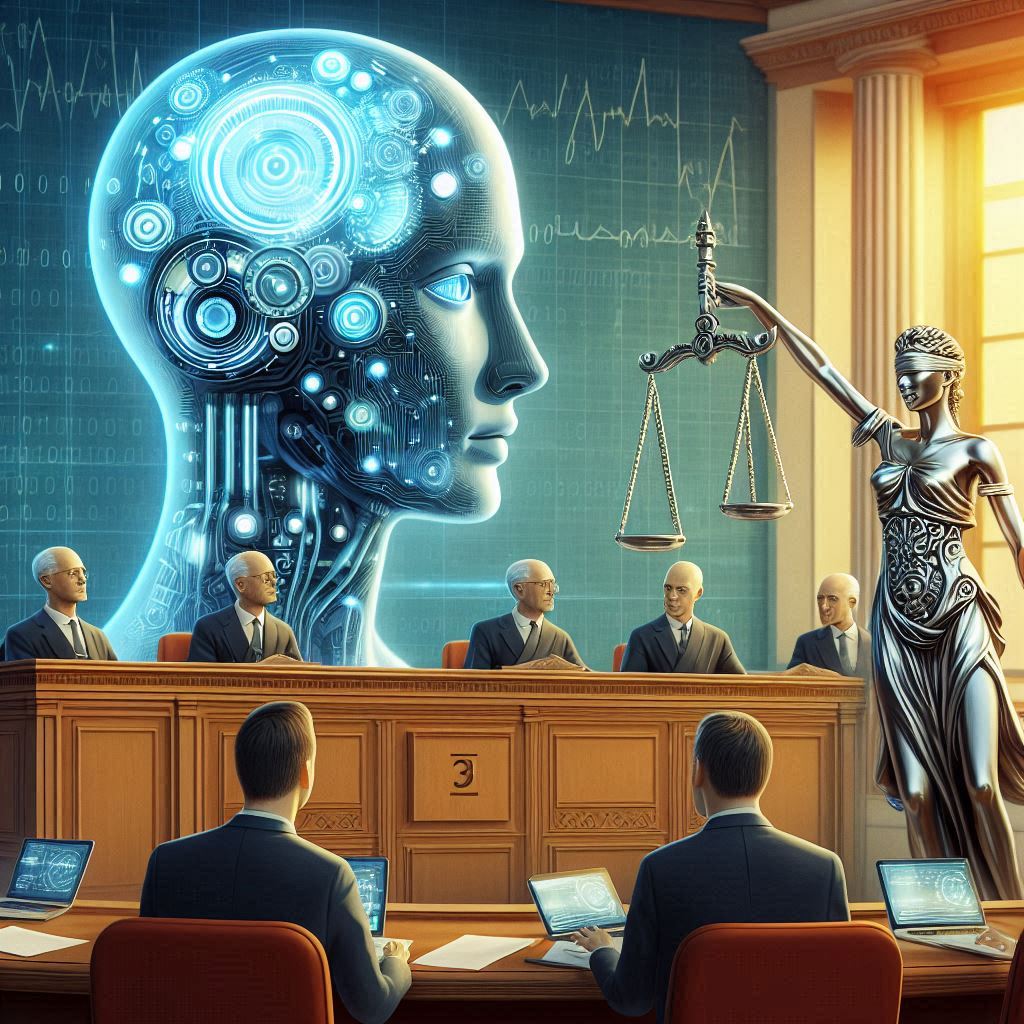In a landmark decision early this week of July, Germany’s highest civil court, the Bundesgerichtshof (Federal Court of Justice), has ruled that inventions generated by artificial intelligence (AI) can be patented. The case (President of the German Patent and Trade Mark Office vs. Dr. phil. Stephen L. Thaler), was part of the global Artificial Inventor Project led by Professor Ryan Abbott of the University of Surrey, involved an AI tool named DABUS , capable of creating a food container using fractal geometry. Number of application and cases have been filled by Dr Thaler in past years before Patent Office and Courts in different nations. The primary issue involved in the cases was- Whether an AI can be regarded as inventor under the IP Law? Other legal query which was under consideration was- Whether a human can be recognized as inventor of AI Generated Works?
With reference to the first issue most of the patent offices and courts in different jurisdictions have neglected the idea by stating that only a natural person can be inventor not an AI System. Also most of the decisions disregarded the second claim of recognizing human as inventor of AI Generated work as the process lacks the element of creativity.
This decision of German Federal Court, signifies a significant shift with respect to the second issue, acknowledging the rapid advancements and impact of generative AI. The verdict resolves conflicting decisions from German federal appellate courts and differs with rulings in countries like the United States and the United Kingdom, Australia which have stricter requirements for human inventorship and human creativity.
Background of The Case
Patent Application Filed: On October 17, 2019, a patent application was filed by Dr. Phil. Stephen L. Thaler, with German Patent and Trade Mark Office naming an AI, DABUS, as the inventor.
Rejection by Patent and Trade Mark Office: The patent office rejected the application, stating only a natural person could be named as an inventor.
Appeal to Patent Court: The applicant, Dr. Stephen L. Thaler, filed an appeal with Patent Court, against the decision of Patent Office requesting following alternative recognitions, :-
- Main Request: The applicant requested that DABUS be allowed as the inventor, with the addition “creation of Stephen L. Thaler, PhD.”
- First Auxiliary Request: The applicant sought a declaration that no designation of inventor was required.
- Second Auxiliary Request: The applicant aimed to name himself as the inventor, with a note that DABUS created the invention.
- Third Auxiliary Request: The applicant sought to name Dr. Stephen L. Thaler as the inventor, specifying he prompted DABUS to generate the invention.
Patent Court Decision: The Patent Court overruled the patent office’s decision, allowing the case to proceed with Third Auxiliary Request that is Dr. Thaler named as the inventor prompted by DABUS.
Further Appeals to Federal Court of Justice (the Bundesgerichtshof:) The Patent Office President appealed the decision, but both the main and cross-appeals were unsuccessful.
Judgement by Federal Court of Justice
Judgment by the highest civil court of Germany clarifies two important debates currently ongoing in the world of IP. I believe the ratio decidendi under the judgment by the learned judges is worth reading and understanding.
Why AI cannot be a Sole Inventor or Co-Inventor?
Court stated that from the decision taken by the legislator to recognize the inventor’s status as an inventor (“inventor’s honour”) with the right of the inventor to be named, it follows for German law that an artificial intelligence cannot be named as an inventor or co-inventor. Current law only allows natural persons to be named as inventors, not machines. An inventor within the meaning of IP laws was already understood to be the (natural) person whose creative activity gave rise to the invention. A machine system consisting of hardware or software cannot be designated as an inventor even if it has artificial intelligence functions. The court referred to the foreign judgements and stated that – The Legal Board of Appeal of the European Patent Office came to the same conclusion. The same conclusion has been reached in case law on national regulations in other countries that also require the designation of human as inventor.
Thus, AI cannot be named as an inventor or co-inventor.
Why Human should be an Inventor of AI Generated Works?
The Court by emphasising on the concept of creativity and the role of human in creative process highlighted that – a human contribution that significantly influences the overall success of the invention is sufficient to justify inventor status. Human contributions that do not impact the overall success or are done under instructions can be excluded. But when it comes to AI systems, they need human preparation and influence, such as programming or initiating the search process, to discover technical teachings. Despite AI’s substantial role, there is always a human element that can be legally recognized as the inventor. While AI plays a crucial role, the essential human contribution in guiding, programming, or selecting outcomes justifies granting inventor status to a natural person.
Thus, human can be an Inventor of AI Generated Works.
What is your opinion on this decision?
How Indian IP Laws shall answer these legal queries?
Comment Below!
Also Read English translation of the decision attached HERE.
References:
- Can AI Be An Inventor? The US, UK, EPO and German Approach https://www.mayerbrown.com/en/insights/publications/2024/01/can-ai-be-an-inventor-the-us-uk-epo-and-german-approach
- The Artificial Inventor Project https://artificialinventor.com/
- German court allows patents for AI-generated inventions https://www.surrey.ac.uk/news/german-court-allows-patents-ai-generated-inventions

